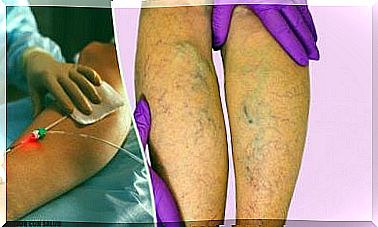Ranitidine: Dosage And Precautions
Ranitidine is administered orally. There are also ampoules for intravenous or intramuscular infusion.

Ranitidine is a specific, rapid-acting antihistamine drug. It inhibits gastric acid secretion, both stimulated and basal. In this way, ranitidine reduces the volume and the acid and pepsin content of the secretion.
Its effects are quite long lasting. Therefore, a single dose of 150 mg can effectively decrease gastric acid secretion for 12 hours. We tell you more in this article.
A little history about ranitidine …
This drug was developed by the Pharmaceutical Company Glaxo from another antihistamine, the first they developed, cimetidine. So, ranitidine is the result of a research process. The researchers wanted to refine the chemical model by replacing different chemical groups.
With these tests, they managed to synthesize ranitidine, which has a much better safety profile. In other words, the table of symptoms related to adverse drug reactions is much smaller.
In return, it has a longer action as well as an activity 4 to 10 times greater than that of cimetidine. In 1981 it was launched on the market and was the best-selling prescription in 1988. Since then it has been replaced by more effective drugs for indications.

What is histamine
Histamine is a substance that belongs to the chemical family of idazolic amines. The latter are involved in local reactions of the immune system. It also regulates the normal functions of the stomach and acts as a neurotransmitter in the central nervous system.
Neurotransmitters are substances that synthesize the body in a natural way. And whose main function is to modulate the synapse between neurons. In other words, they regulate the chemical interactions between neurons during signal transmission.
In this way, we achieve more complete electrical connections and give rise to more possibilities. If neurotransmitters did not exist and neurons acted as simple “cables”, many functions of the nervous system would not be possible.
On the other hand, new evidence indicates that histamine also plays a role in the chemotaxis of white blood cells such as eosinophils.
The existence of histamine has been known since the 1950s. However, it is only recently that we have started to understand its functions in the body.
Indications
The indications for this medication are related to its ability to antagonize histidine H2 receptors. Among them we can cite:
- Duodenal ulcer.
- Benign gastric ulcer.
- Gastroesophageal reflux disease and treatment of associated symptoms.
- Zollinger-Ellison syndrome.
- Treatment of esophageal and gastric bleeding with hypersecretion and prophylaxis of recurrent bleeding in patients with bleeding ulcer.
In addition to the indications mentioned, ranitidine is also used as a prophylaxis against gastrointestinal bleeding caused by a stress ulcer in critically ill patients.
In addition, it is also administered preoperatively in patients at risk of acid aspiration syndrome. Also known as Mendelson’s syndrome. It is also prescribed for obstetrics patients during childbirth.
Dosage and dosage
The administration form of ranitidine is by mouth. Otherwise, there are ampoules for administration by intravenous infusion or intramuscularly. However, this type of procedure is performed in a hospital setting.
Depending on the indication, the concentrations of ranitidine vary:
- Duodenal ulcer in adults: a dose of 150 mg every 12 hours or 300 mg in the evening for 4-6 weeks. In children, 2 mg per kilogram every 12 hours.
- Gastric ulcer in adults: 150 mg every 12 hours or 300 mg in the evening for 6-8 weeks. For associated symptoms, 150 mg is given every 12 hours for two weeks. Knowing that treatment may be prolonged due to an initial bad reaction.
- Zollinger-Ellison syndrome: the starting dose will be 150 mg every 8 hours. It is possible to increase depending on the reaction of the patient. However, the maximum dose of this medicine is 6 grams per day.
For other indications, consult the technical data sheet of the medicinal product where all the information relating to ranitidine is collected.
Precautions for the use of ranitidine

Caution is advised in a variety of situations where the dose must be adjusted to avoid serious complications. This is the case for patients who present with the following problems:
- Renal impairment: dose adjustment.
- Interference in the diagnosis of carcinoma: Ranitidine can delay the symptoms of this type of cancer, obscuring the diagnosis.
- Interference in diagnostic tests.
- Pregnancy and breast feeding.
Conclusion…
Ranitidine is a widely used prescription antihistamine drug. It is important to follow the doctor’s recommendations as it is not free from side effects and can lead to a series of complications.









